- Learning time
- 60 minutes
- First play time
- 120 minutes
Rocketmen
Designed by: Martin Wallace
Rocketmen sees you compete with your fellow players as you reach for the stars – or, to be more precise, Earth’s orbit, the moon, and finally Mars.
The goal of the game is to achieve the most – or the best – of these objectives, with the three aforementioned destinations having space for a variety of equipment, from a lowly satellite via a spaceship all the way up to a base. The bigger and better you do here, the more points you score.
But although the board shows these destinations and the path your rocket takes to reach them, Rocketmen is all about the cards. Each player has a small starting deck, but during the game you’ll be buying more powerful cards from a display to progress your missions. Some cards can be discarded for their cash value, and this is how you get the juicier cards. Others are the rockets you’ll need to power your ship, and others still represent both your planned missions and the rockets you send on them. Many cards have multiple options: they can be spent as cash, or used as rockets, or represent a launch plan, or be part of the rocket itself either as a helpful resource, or a special ability that activates itself on launching.
On your turn you’ll have six cards to spend how you like, buying as mentioned above or planning a mission. You need one card played into your launch area which represents your plan. It might be a satellite, space hotel, or something else. In any case, the card also says which of the three destinations you can fly to, and how many rockets you’ll need to get it there. How do you create your cosmonautic construction? – With cards of course! Over the course of a few turns, now you have a plan you can build the thing, paying for each card you use to build it. Once you feel it’s ready, launching the thing is a free action: simply announce the launch at the end of your turn and head off into space!
But this is where things get tense, because even having enough rockets in theory is no guarantee of success. Your rocket always starts at the bottom of the trail, and you firstly move it forward one space for each symbol in you have that matches the destination symbol: microchip symbols for Earth orbit, beakers for the moon and science for Mars. Then, your mission card tells you how many Mission Success cards you can flip over; usually 3 for Earth, 4 for the Moon and 5 for Mars. They’re called Mission Success somewhat erroneously, as there’s no guarantee of success – each card moves you 1, 2, 3 or – very occasionally – 4 spaces along the track. If you make it to your destination – success! You score points (extra points if you’re the first here) and take the bonus on the Mission card – a round-by-round reward of money, rockets, or a larger hand size of cards.
The risk of the missions can be offset by cards with Launch powers, but these are expensive. The other expensive cards are Threat cards, so it’s worth covering them briefly. The Threat cards are worth 2points each at the end of the game, so having several can swing things your way. The problem with them however is while the game is ongoing, they do nothing but clog up your hand. So Rocketmen comes with a built-in tipping point for when the best time is to start abandoning space – if at all – and embracing the threats at home. The further you go through the purchasable cards, the more threat there is…
Whenever your draw deck is empty, your discarded cards are shuffled again to become the new draw deck, so ‘discarding’ doesn’t (usually) mean losing the card forever. It all amounts to a space-race with rapid-fire turns where the winner is the best tactician – with a little bit of luck.
The guru's verdict
-
Take That!
Take That!
No direct interaction, but plenty of indirect with cards, objectives, and points being claimed in a race of overlapping finishing lines.
-
Fidget Factor!
Fidget Factor!
Low - turns are generally pretty speedy.
-
Brain Burn!
Brain Burn!
Because most cards can do at least two different things, it sounds like a hand of six (or more!) might overwhelm you, but Rocketmen manages to avoid this sense of overwhelm.
-
Again Again!
Again Again!
There are lots of different cards - more for more players - but it's more than randomness of how they appear that gives the game nuances.

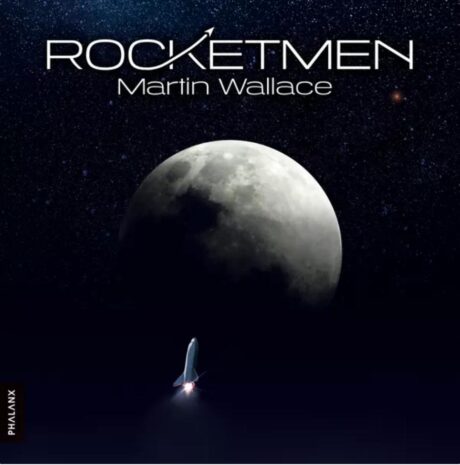
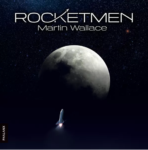

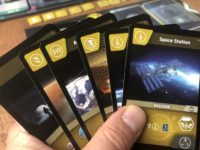
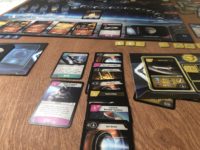


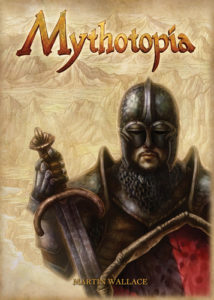
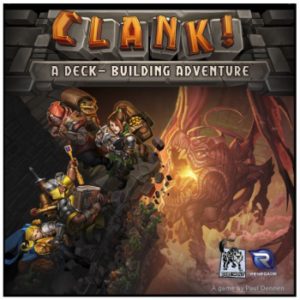
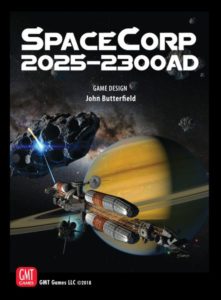
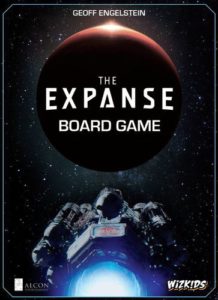
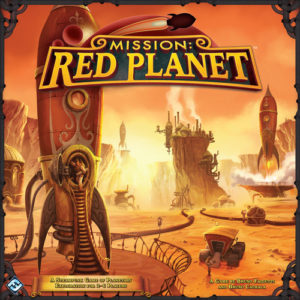
Sam says
Rocketmen is very good value for money, at time of writing, £25 for a big box with a big board and a plethora of cards. But - full disclosure, I have only played the game once so do not claim to know it intimately - I found the experience slightly underwhelming, both in presentation and execution. The card system is a bit messy, with the info you need on cards arranged on both the top and the bottom. The turns are very fast - which I like - but often it felt like that was because my choices were fairly obvious, dictated to me by whatever cards I'd drawn by chance. I like the brevity and simplicity here, and I love how the missions are loaded with risk - there is an abort option that can minimise damage, but it's so tempting to push on! - but I felt those fun moments took their time to come around, with a fair bit of grind between them. Rocketmen is still a very good game compared to where boardgames were 30 years ago. But in the crowded market of the 'golden age' of board games we currently inhabit, it doesn't quite reach the stars.